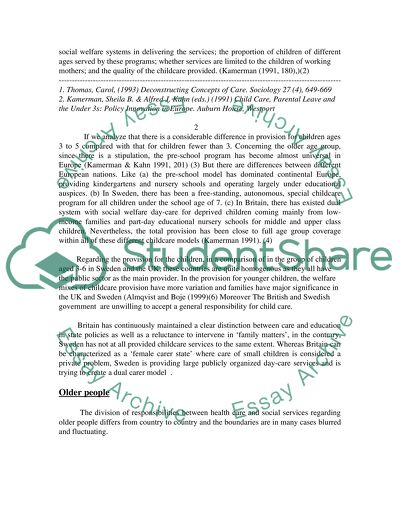Cite this document
(“Social Care Policies in Global Society Essay Example | Topics and Well Written Essays - 1500 words”, n.d.)
Retrieved from https://studentshare.org/social-science/1512731-comparative-social-care-policies-uk-to-be-compared-with-either-swedenfrancegermanynorwaydenmark-or-holland
Retrieved from https://studentshare.org/social-science/1512731-comparative-social-care-policies-uk-to-be-compared-with-either-swedenfrancegermanynorwaydenmark-or-holland
(Social Care Policies in Global Society Essay Example | Topics and Well Written Essays - 1500 Words)
https://studentshare.org/social-science/1512731-comparative-social-care-policies-uk-to-be-compared-with-either-swedenfrancegermanynorwaydenmark-or-holland.
https://studentshare.org/social-science/1512731-comparative-social-care-policies-uk-to-be-compared-with-either-swedenfrancegermanynorwaydenmark-or-holland.
“Social Care Policies in Global Society Essay Example | Topics and Well Written Essays - 1500 Words”, n.d. https://studentshare.org/social-science/1512731-comparative-social-care-policies-uk-to-be-compared-with-either-swedenfrancegermanynorwaydenmark-or-holland.


